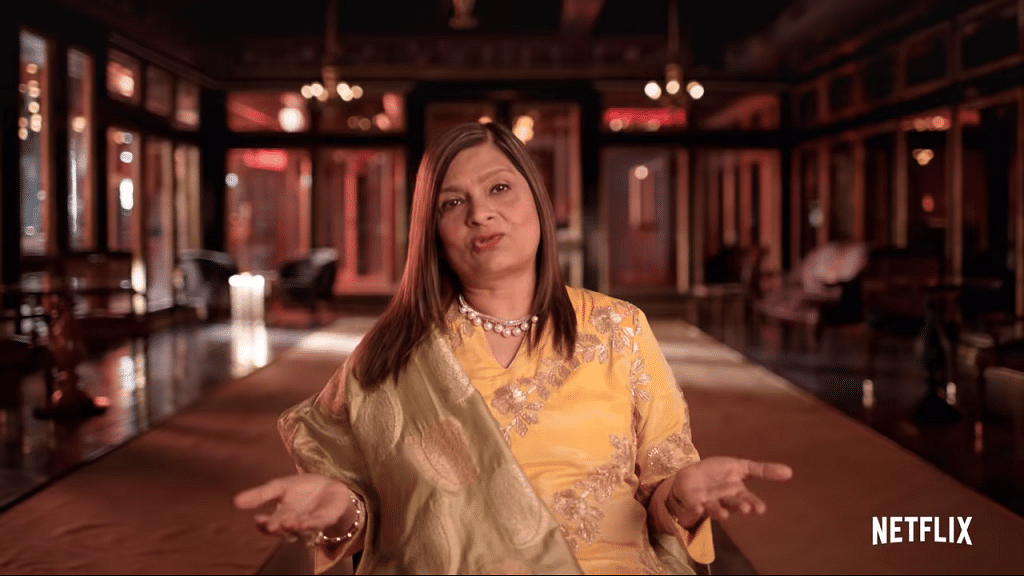Indian Matchmaking on Netflix is the kind of aunty gaze nobody needs to see highlighted, or worse, glorified. Watching the show, that follows Mumbai-based matchmaker Sima Taparia find suitable partners for Indians and Indian Americans, is as uncomfortable as talking to an Indian ‘aunty’ at a wedding once you’ve reached the so-called ‘marriageable age’.
The uncle-aunty ideology is one that presumes our parents know best when it comes to finding a life partner, and that their children’s opinions are irrelevant. They throw numbers around about the high failure rate of ‘love marriages’ in India as evidence that their preferred mode of arranged marriage has and will always be superior. Forget about the fact that what empowers someone to enter marriage on their own will also empower them to exit a potentially toxic, abusive or dysfunctional relationship.
This ‘family’ insistence is the reason why women often continue to opt for and stay in arranged marriages, since breaking off their relationship could somehow cast a shadow on the ‘reputation’ of their family. This also allows nosy relatives to ask intrusive questions like, “when are you giving us the good news,” or make judgements about the equation the husband and wife share. These relatives just need to back off, we don’t need them. And we don’t need Netflix to come in and give a glorified platform to this regressive hogwash.
Indian Matchmaking is a glorification of this aunty gaze, that refuses to criticise arranged marriages which are nothing more than a product of India’s patriarchal, classist and casteist society that constantly ensures there is no ‘deviation’ from the norm.
With people on the show saying things like, “we don’t say arranged marriages or love marriages in India, we say marriages or love marriages’, the show plays into the antiquated idea that your parents and your community have a legitimately larger role to play than you yourself, while choosing a life partner.
Taparia is the perfect embodiment of a typical aunty who perpetuates casteist, sexist and colourist notions throughout the show and believes parents know best.
A white audience
Most of Taparia’s clients in the show are NRIs, willing to find a potential suitor through the ‘South Asian’ tradition of arranged marriages.
In an interview with the Los Angeles Times, Oscar-nominated director Smriti Mundhra said she wanted to depict this tradition of arranged marriages for a global audience on Netflix, but not specifically for a Western gaze. But by failing to capture the changes and progress India’s urban youth have achieved over the years, the result is a snackable, amusing, and shocking show for white audiences to binge.
Nowhere in sight are the struggles of a ‘modern’ Indian, battling the regressive mentality of their parents. Apart from just navigating the difficult search for a suitor, these struggles include the general resistance many have to put up against parents who continually try to exert their choices upon us.
Mundhra claims the show is meant to capture the diversity of ideologies and backgrounds that make up the South Asian experience, but no criticality is exercised at any point. Taparia’s orthodox ideas are never judged, and the viewer is forced to see the characters, especially the women of the show as impossible creatures who are looking for a life partner but are unwilling to ‘compromise’.
Perhaps some diversity would have been reflected on screen if the director had actually bothered to speak to a cross-section of young Indians, instead of running off to NRIs. Just because Western audiences might find certain old-fashioned facets of our culture intriguing, doesn’t mean we should glorify those things.
Also read: Partying with strangers: Why urban India is choosing to spend weekends meeting new people
Arranged marriages shouldn’t be glorified
Choosing a spouse is an extremely important decision, and affects one’s life more than anything else. Marriage is between two individuals, and Indian society’s insistence that it is between two families requires immediate cancellation.
Arranged marriages also perpetuate casteism, more openly and brazenly than anything else. While other casteist practices like untouchability continue to be practiced in many upper-caste households in a hush-hush way, matchmaking is where they publicly advertise their casteist notions in the newspapers.
To see Netflix give a platform to a show that is outrightly regressive, shows the level of sensitivity still needed while portraying different cultures across the world. Netflix needs to have a more diverse set of executives and consultants in place while commissioning such shows, since it’s one of the world’s leading platforms for people to consume pop culture from different regions of the world.
Views are personal.
